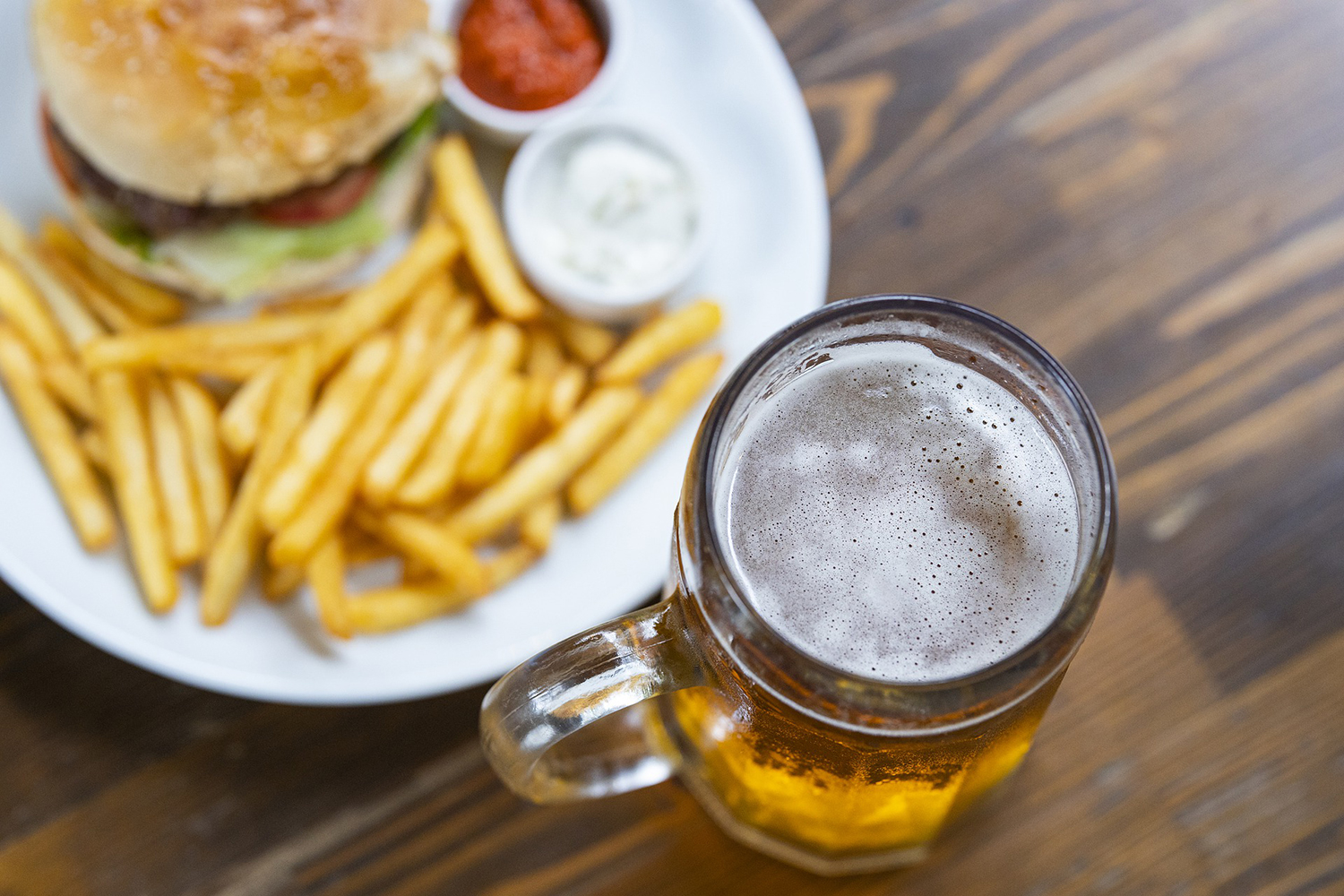What is fatty liver disease?
Fatty liver disease, also known as hepatic steatosis, is a condition where fat accumulates in the liver. This can occur due to excessive alcohol consumption (alcoholic fatty liver disease) or due to non-alcoholic causes (non-alcoholic fatty liver disease or NAFLD). NAFLD is commonly associated with obesity, type 2 diabetes, high blood pressure, and high cholesterol levels.
Symptoms of fatty liver disease
In the early stages, fatty liver disease may not cause any symptoms, but as the condition progresses, symptoms such as fatigue, abdominal pain, and swelling, and yellowing of the skin and eyes (jaundice) may develop.
How to treat fatty liver disease
Treatment of fatty liver disease includes lifestyle changes such as weight loss, regular exercise, and a healthy diet.
A dietitian can play an important role in the treatment of fatty liver disease by creating a personalized nutrition plan for the individual.
The goal of the nutrition plan is to promote weight loss, improve insulin sensitivity, reduce inflammation, and lower cholesterol and triglyceride levels in the blood.
Roles of a dietitian in treating fatty liver disease.
Here are some ways a dietitian may treat fatty liver disease:
- Weight loss: Achieving and maintaining a healthy weight is crucial in treating fatty liver disease. A dietitian can help the individual establish a healthy caloric deficit through a balanced diet that is rich in whole grains, fruits, vegetables, and lean protein sources.
- Limiting saturated and trans fats: Saturated and trans fats can increase cholesterol levels and contribute to inflammation. A dietitian can help you identify sources of these fats in your diet and find healthier alternatives.
- Reducing added sugars and refined carbohydrates and increasing fibre intake: Added sugars and refined carbohydrates can raise blood sugar levels and contribute to insulin resistance, which can worsen fatty liver disease. Fibre can help improve insulin sensitivity and lower cholesterol levels. A dietitian can help you choose healthier carbohydrate sources and fibre-rich foods.
- Encouraging moderate alcohol consumption: For those with non-alcoholic fatty liver disease, alcohol consumption should be limited or avoided. For those with alcoholic fatty liver disease, abstaining from alcohol is essential.
- Providing individualised guidance: A dietitian can work with the individual to create a personalised nutrition plan that addresses their specific needs and preferences.
Overall, the goal of a dietitian’s treatment plan is to improve liver function and reduce the risk of developing more serious liver conditions such as cirrhosis or liver cancer.
What is chronic kidney disease?
Chronic kidney disease (CKD) is a long-term condition where the kidneys are damaged and do not function properly over time. This damage can lead to a buildup of waste products and excess fluids in the body, which can cause a range of symptoms and complications.
What are the symptoms and causes of chronic kidney disease?
The early stages of CKD may not produce any symptoms, but as the condition progresses, symptoms such as fatigue, weakness, shortness of breath, swelling in the legs and feet, and changes in urination may develop. The causes of CKD can vary, but the most common causes include diabetes, high blood pressure, and kidney inflammation. Other risk factors include age, family history, obesity, smoking, and certain medical conditions such as autoimmune diseases.
How to treat chronic kidney disease?
Treatment of CKD typically involves managing underlying medical conditions, such as controlling blood sugar and blood pressure levels and making lifestyle changes, such as quitting smoking and maintaining a healthy weight.
A dietitian can play a key role in the treatment of CKD by developing a nutrition plan that helps to manage symptoms and slow the progression of the disease.
How a dietitian treats chronic kidney disease
Here are some ways a dietitian may treat CKD:
- Restricting protein intake: Consuming too much protein can increase the workload on the kidneys, leading to further damage. A dietitian can help the individual determine an appropriate level of protein intake based on their stage of CKD and other medical conditions.
- Limiting sodium and potassium: Both sodium and potassium can be problematic for those with CKD, as they can cause fluid imbalances and lead to high blood pressure. A dietitian can help the individual identify sources of these minerals in their diet and find healthier alternatives if necessary.
- Managing phosphorus and calcium: High levels of phosphorus in the blood can contribute to bone and heart disease, while low levels of calcium can lead to bone loss. A dietitian can help the individual balance their intake of these minerals through diet and medication.
- Encouraging fluid control: Those with CKD may need to limit their fluid intake to prevent fluid buildup in the body. A dietitian can help the individual determine an appropriate fluid intake based on their stage of CKD and other medical conditions.
- Providing individualised guidance: A dietitian can work with the individual to create a personalised nutrition plan that addresses their specific needs and preferences.
Overall, the goal of a dietitian’s treatment plan is to help manage symptoms and slow the progression of the disease, while also promoting overall health and well-being.













